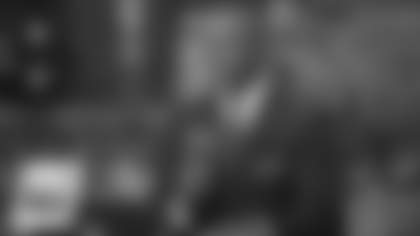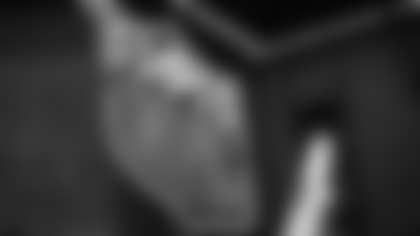**
Q: You've coached long enough that you've had your share of tough losses, like the one the other night in Dallas. What is the key to learning from the end of the game and moving on, without dwelling on what happened?**
|
|||||||||||||||||||
Coughlin: "You have to state the facts. But by the same token, you have to recognize the things that were done well. I was encouraged by the effort, I was encouraged by how hard they played, I was encouraged by different things throughout the game. The turnovers, obviously going plus-three was huge. I was encouraged by the 5:12 drive (in the third quarter). Only came away with a field goal, but I was encouraged by that. But the fact is that the last two drives of theirs - six plays, 76 yards and six plays, 72 yards – we have to do something about that. That's too easy. When you've got somebody with basically 1:29 (remaining) and they use 1:22 of it, and had no timeouts and once got the ball out of bounds, it's a little bit too easy, too fast. There's a big learning experience for us there, in terms of what we have to do is trust in our preparation, trust our fundamentals, trust the way we've been playing, and play through the aspect of the last two minutes or whatever of the game with the idea of don't worry about the result. Compete, play hard, challenge your opponent, and play with the same intensity that you played throughout the game."
Q: You answered my next question in part. What happened on the offensive end would not have been as scrutinized had the defense stopped Dallas on its last possession. What does the defense need to do if you're in that situation this week?
Coughlin: "It's the same thing I was just telling you. Play the way you played the game. There's no reason to back off. The running back (Lance Dunbar) had basically two checkdowns that took them from the minus-28 (yard line) to the plus-32 (on the first two plays of the deciding drive). Two plays in a row. You tackle the back for a five-yard gain, and they're at the 38 and the ball is in bounds and the clock is running. If they're going to check the ball down to beat you, you better make the tackle in a reasonable amount of yardage. Lay on the ball carrier, do all the things that you do when the other team doesn't have any timeouts. You're put in a mode where you know what you're defending. They had to have a touchdown, I understand that part of it. But it's got to be more competitive just as you play. You certainly don't give up the big play, but you compete more intensely for the underneath stuff, so that's not what beats you."
Q: Eli Manning seems to have almost a unique ability to be able to shed things, good or bad, and go onto the next task. Do you see that in him and have you seen that this week?
Coughlin: "I've seen it in him many times before. It's a discipline, just like anything else is a discipline. He's better at it than most, to be honest with you. He's probably better at it than I am. The term that I use, you know what it is, it's remorse for opportunity lost. Wow. We're on the road opening against a divisional champion. We give ourselves what amounts to be two defensive touchdowns, and we don't win. Plus-three (turnover differential) and you don't win, that's rare, very rare. The offensive team is not scoring touchdowns. Taking care of the ball and scoring touchdowns, that's our job, however you define it."
Q: You said immediately after the game to the players and a few minutes later to the media, "This is on me, this loss is my fault." In your opinion, how important an attribute is accountability for a head coach?
Coughlin: "Credibility is all important, and you're not going to be credible unless you can be honest. And the honest thing to do, you've got to understand where responsibility starts, and if in fact the responsibility is violated, I'm the guy that's in charge. I'm the guy that is responsible, that's all there is to it."
Q: You've said a few times you'd like to see the ball thrown down the field more often. Is that one of the harder facets of an offense to develop?
Coughlin: "The defense has got to give it to you, first of all. You just don't throw it down the field. But you do want to have opportunities where you stretch the field a little bit, because it's really a strategic part of the game. If you don't do that, sooner or later, even the most disciplined defensive back is not going to respect any kind of depth in your route. They're going to start sitting all over the underneath stuff. So you have to have a better combination."
Q: You had five players last week that made their NFL debuts: Ereck Flowers, Landon Collins, Uani 'Unga, Geremy Davis and Nikita Whitlock. In your experience, once these guys get past the excitement and jitters of their first game, is there a noticeable improvement the following week?
Coughlin: "You're going to see improvement. You're going to see, hopefully, steady improvement. I don't think you're going to see any major, drastic change, but you're going to see steady improvement. That's what you train for."
Q: If you had said at the start of training camp that 'Unga was going to be your opening night middle linebacker and he would have 12 tackles, you would have received some sharp questions. When did he start really catching your eye and what did he do to catch your eye?
Coughlin: "First of all, he impressed on special teams. And then he began to impress from down and distance. When the opportunity allowed him to play, he handled it pretty well. Did some good things. He is athletic, he can run, he is physical, he does have size. So those are all good ingredients. The fact that we were in the predicament we were in, hoping that (Jon) Beason could play, but really not a lot of medical backing behind it, it was just a natural move that he would start. That's what he was here for. He did a good job. He was on the spot, he tackled well. It was a great experience for all those young guys to be in that environment, and play in a game of that nature, and play reasonably well."
Q: When you go into an environment like that in an opening game are you concerned how the newcomers will react to it?
Coughlin: "Well, you talk about it. You also add all the ingredients that take away from that - you're playing in the division, you're playing against a good football team. Our overall responsibilities and training have got to trust you to go out and play. For the most part, that takes place."
Q: Are you going to have season captains this year?
Coughlin: "We have season captains. Eli, Beason, and Zak (DeOssie)."
Q: And you're going to add more on a per-game basis?
Coughlin: "Maybe one. But I added two the other day (Cullen Jenkins and Mark Herzlich) because Beason's not out there."
Q: This week you play the Atlanta Falcons. Watching them the other night, it's obvious they like to move Julio Jones all over the formation to try and create mismatches.
Coughlin: "They throw their of crosses, a lot of play-action. They ran the ball 35 times, and threw it 35 times. So obviously balance is a real important factor for them. Last time Matt Ryan was here (a year ago), he threw it 50 times. Obviously, stopping the run is going to be a huge factor."
Q: Dan Quinn, their new head coach, was the defensive coordinator in Seattle. You faced the Seahawks each of the last two seasons. What are the characteristics of a Dan Quinn defense?
Coughlin: "Physical. They lure you into believing - and they do, they play fundamentally sound football. Their techniques are played very, very well. They have nine defensive linemen that dress, so they constantly roll people in there, and they're fresh. They play with outstanding corners. The safeties are good football players. Normally you see (Ricardo) Allen back 15 yards deep, and (William) Moore is going to man the line of scrimmage and react to what personnel grouping you have on the field. So they're disciplined, they're physical, they run to the ball very well, they're opportunistic. They do more within the concept of how they play than you think they do. That's where you've got to prepare yourself, because not everything that you see in the first game is inclusive on what they bring to the table, as they advance their defensive scheme. So you do have some thoughts about what Jacksonville (whose head coach, Gus Bradley, preceded Quinn as Seattle's D-coordinator) has done for a couple years, with regard to how we've played them. Then, Seattle themselves, you watch that tape, too."
Q: Devin Hester has not practiced because of a toe injury, so the Falcons might be without their best return specialist. But is Matt Bosher, their punter and kickoff specialist, a weapon himself, with his ability to flip the field?
Coughlin: "Both of them are, (kicker Matt) Bryant and Bosher. Bosher punts the ball, of course last week was indoors, but 57.8 (gross average), followed by a 51.5 net. There's no doubt he's a weapon, strong-legged. It's like last week, in that dome in Dallas. You've got the same thing here, you've got a guy who kicks it out of the end zone six out of six times."
Playmakers on Falcons first-team offense, defense, and special teams, presented by Nike
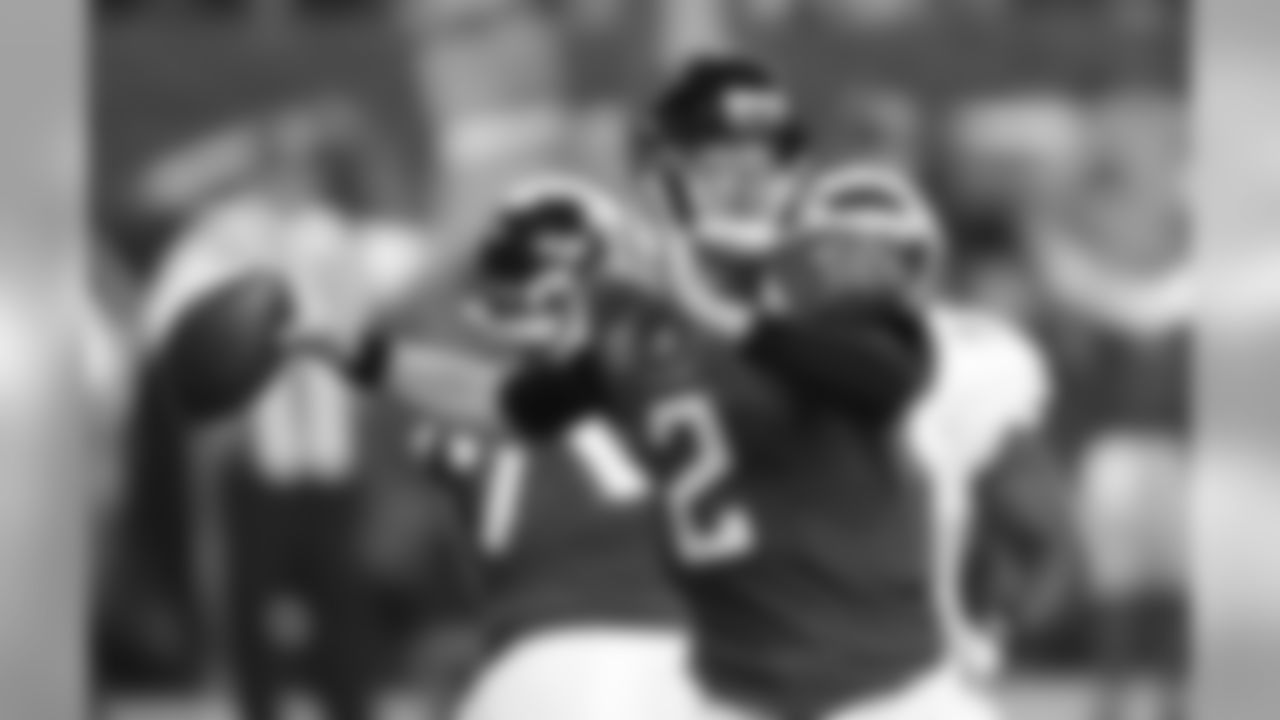
QB MATT RYAN
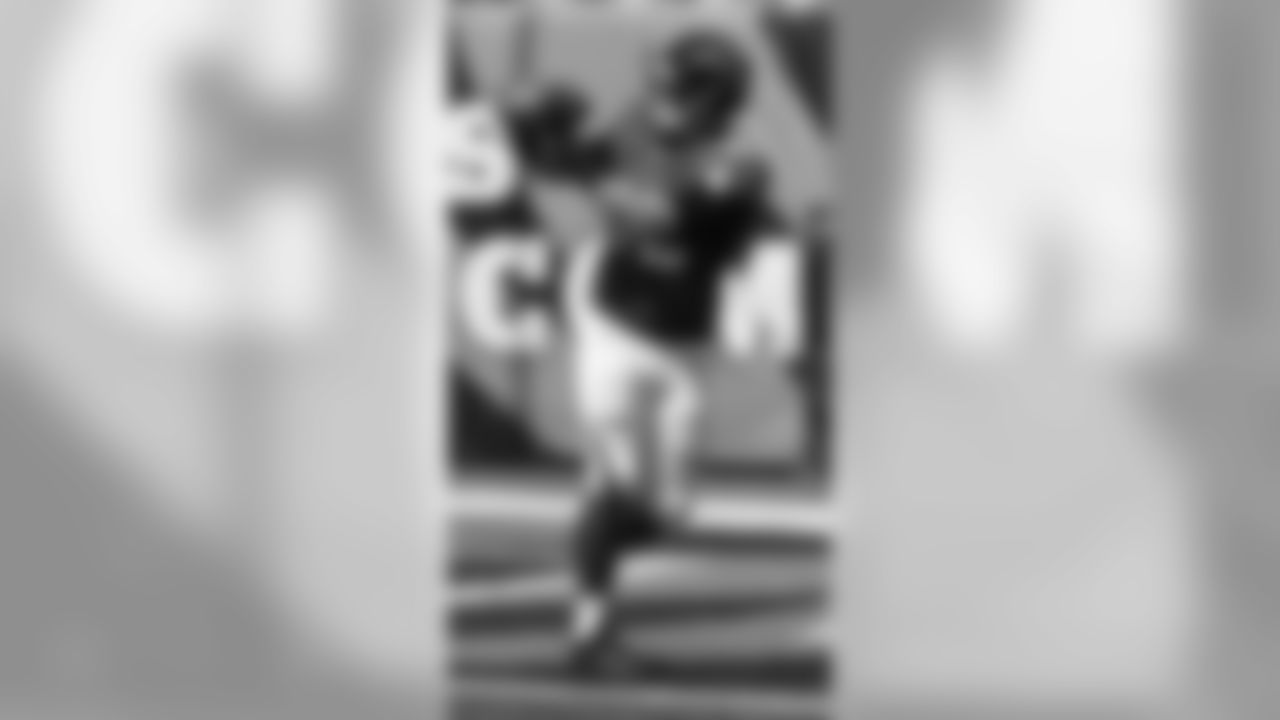
FB PATRICK DIMARCO
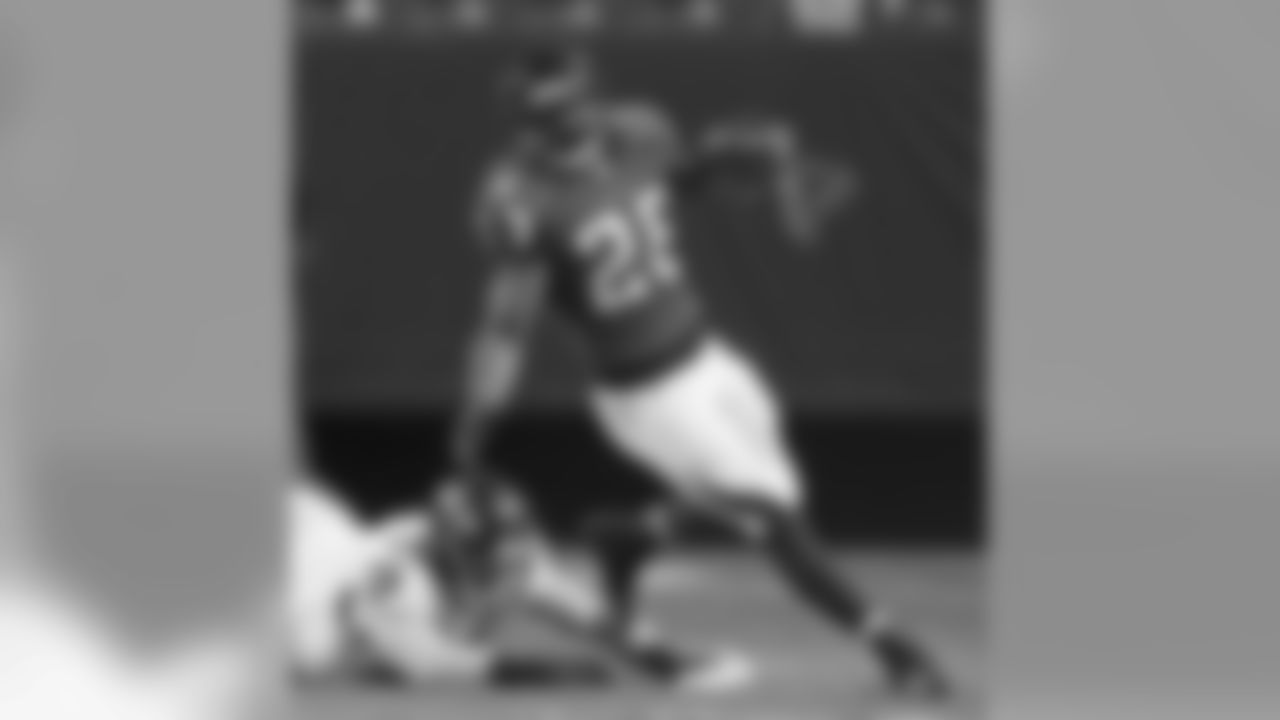
RB TEVIN COLEMAN
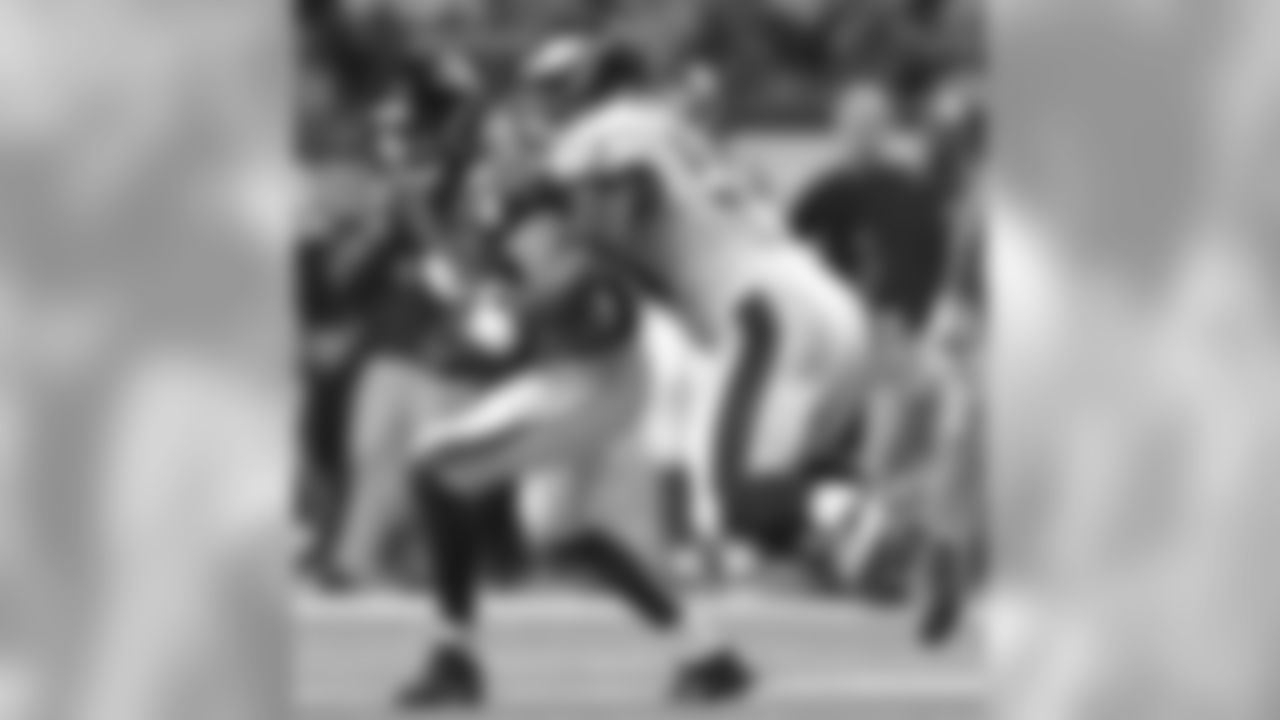
TE JACOB TAMME
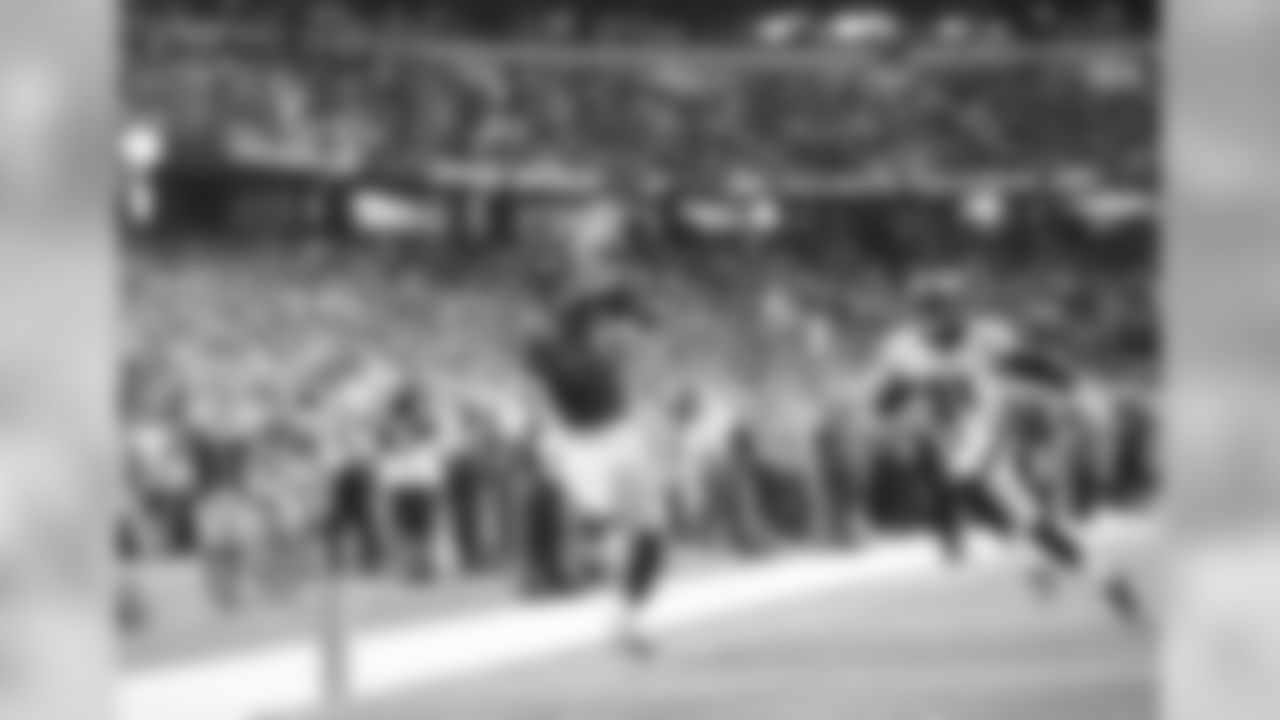
WR JULIO JONES

WR RODDY WHITE
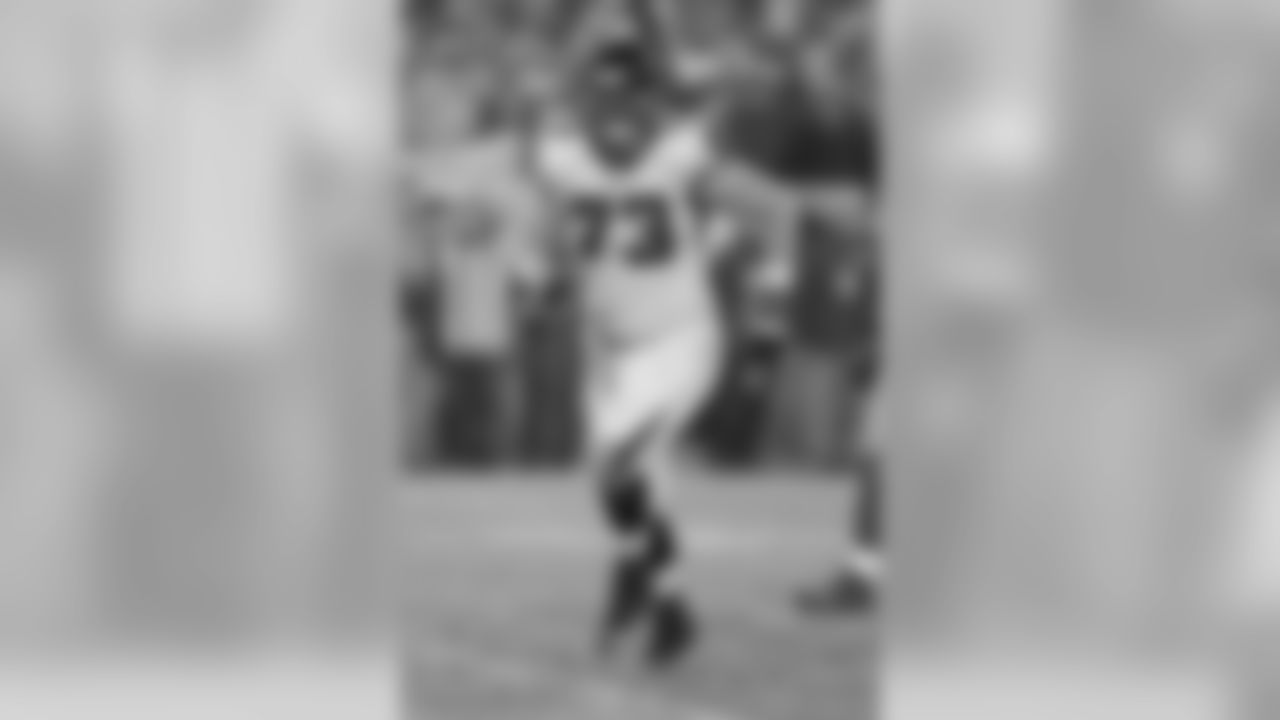
RT RYAN SCHRAEDER
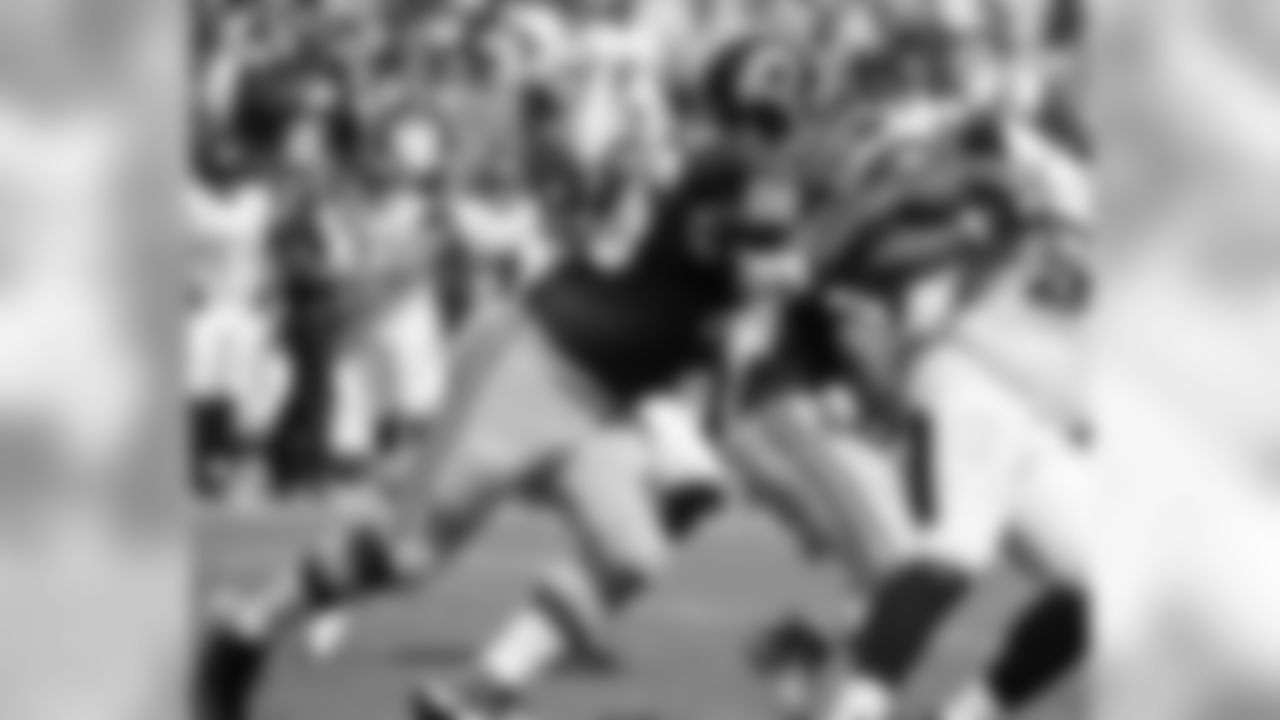
RG CHRIS CHESTER
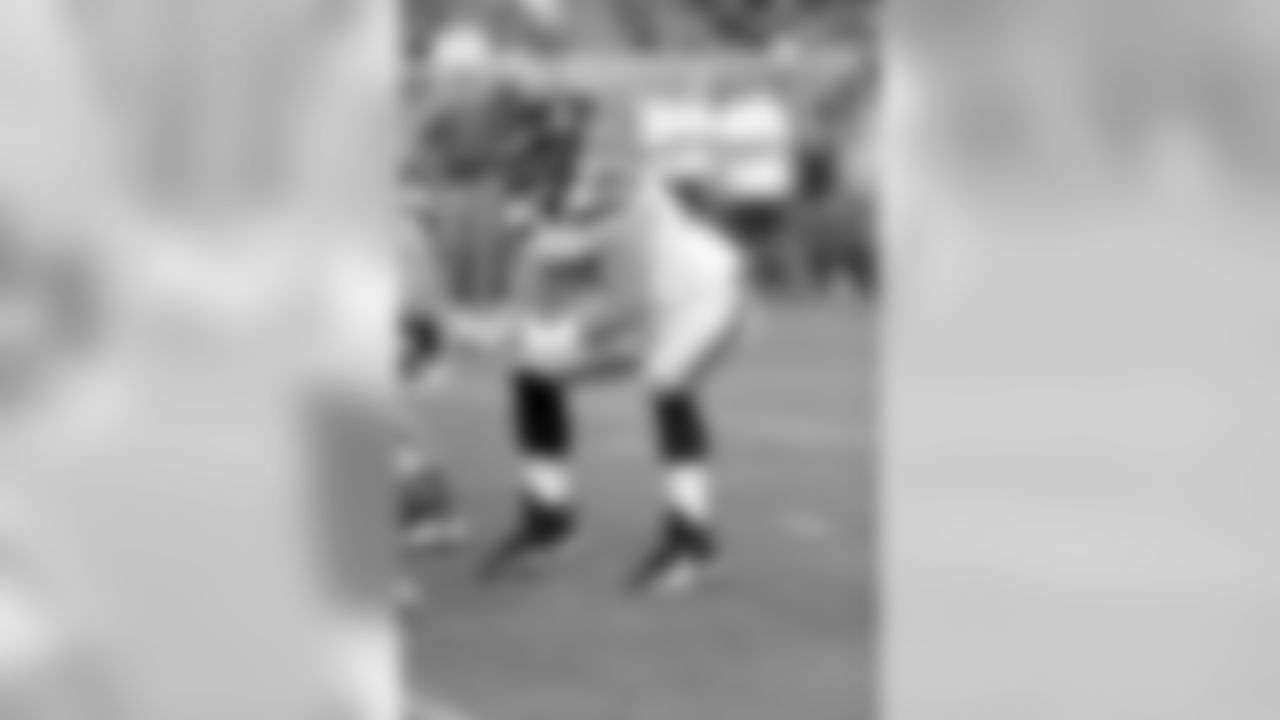
CENTER MIKE PERSON
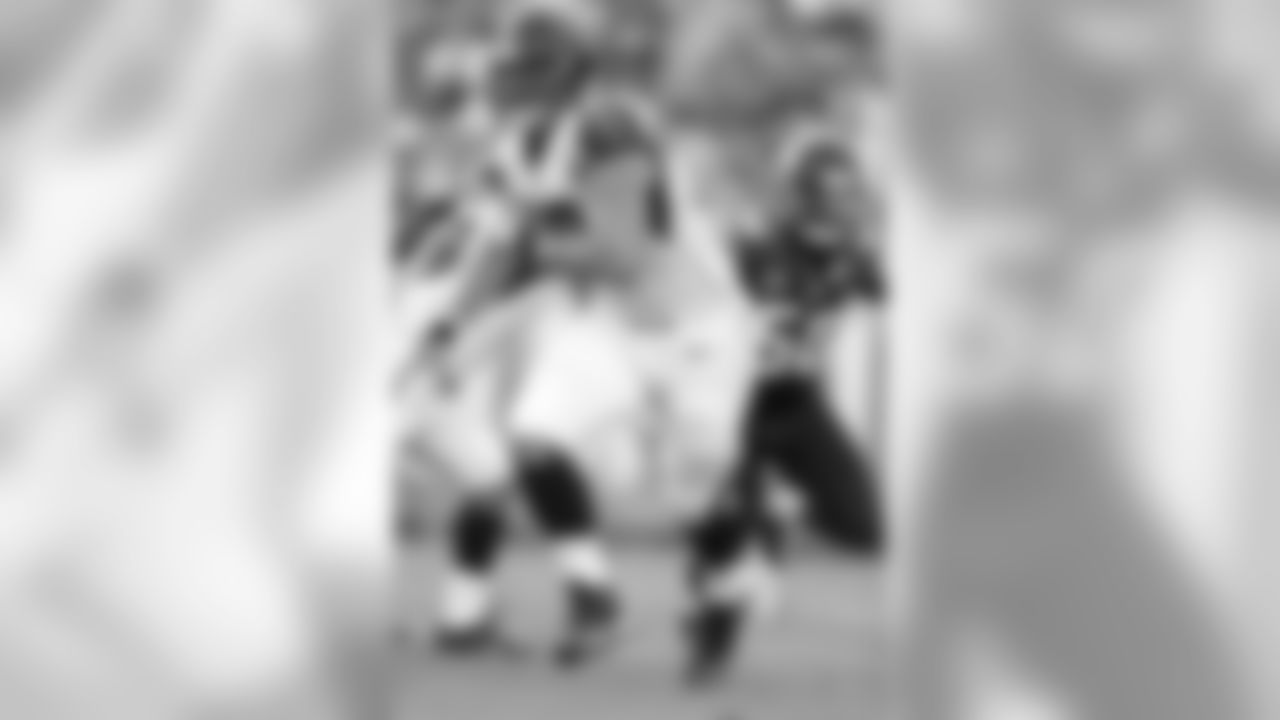
LT JAKE MATTHEWS
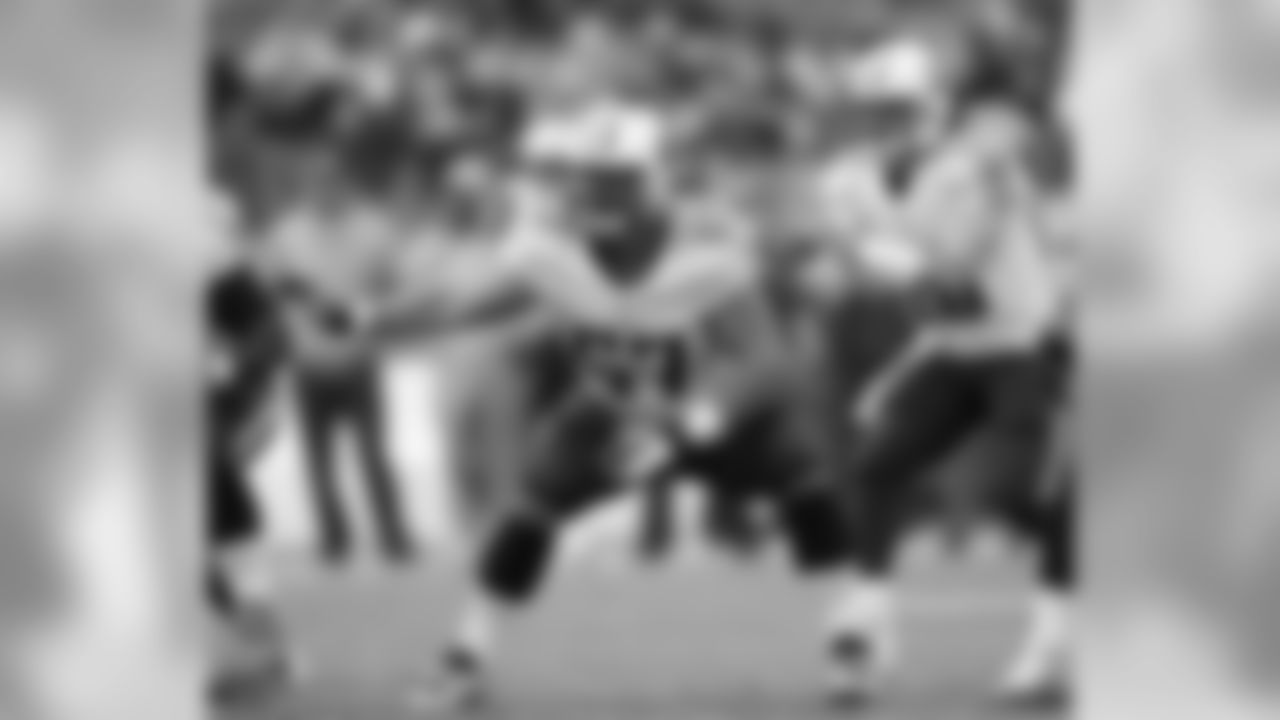
LG ANDY LEVITRE
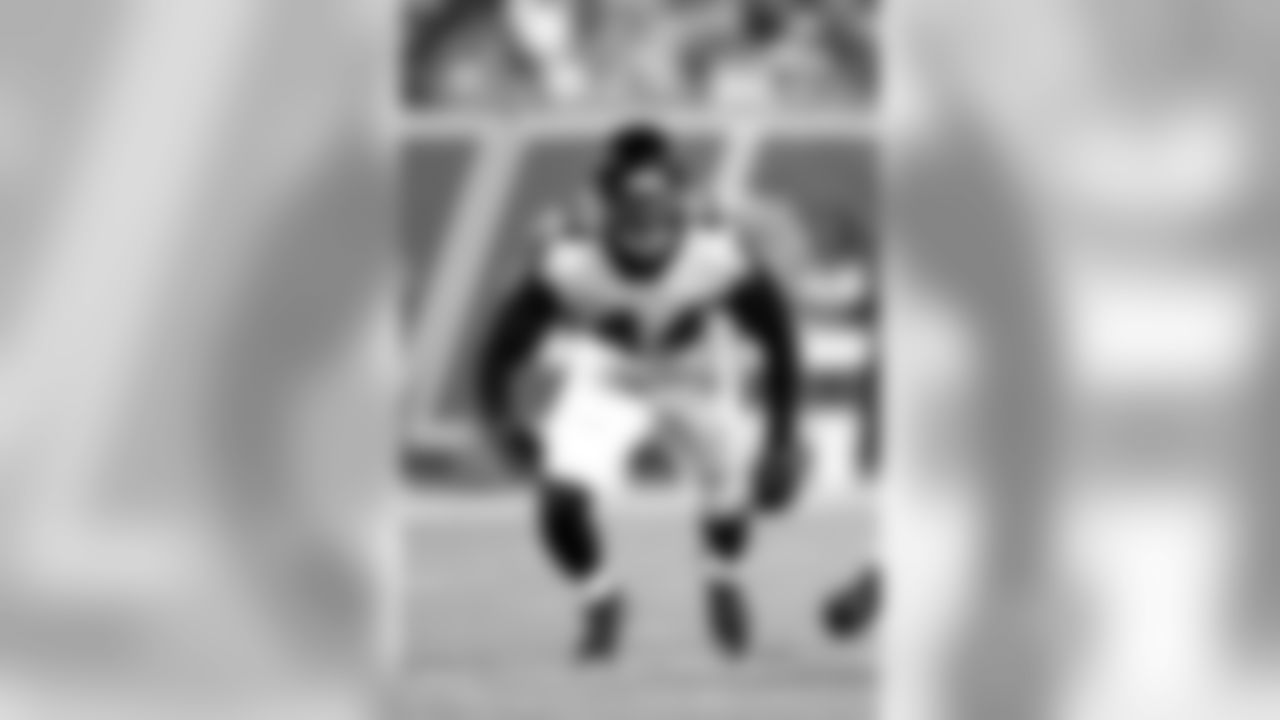
DE VIC BEASLEY
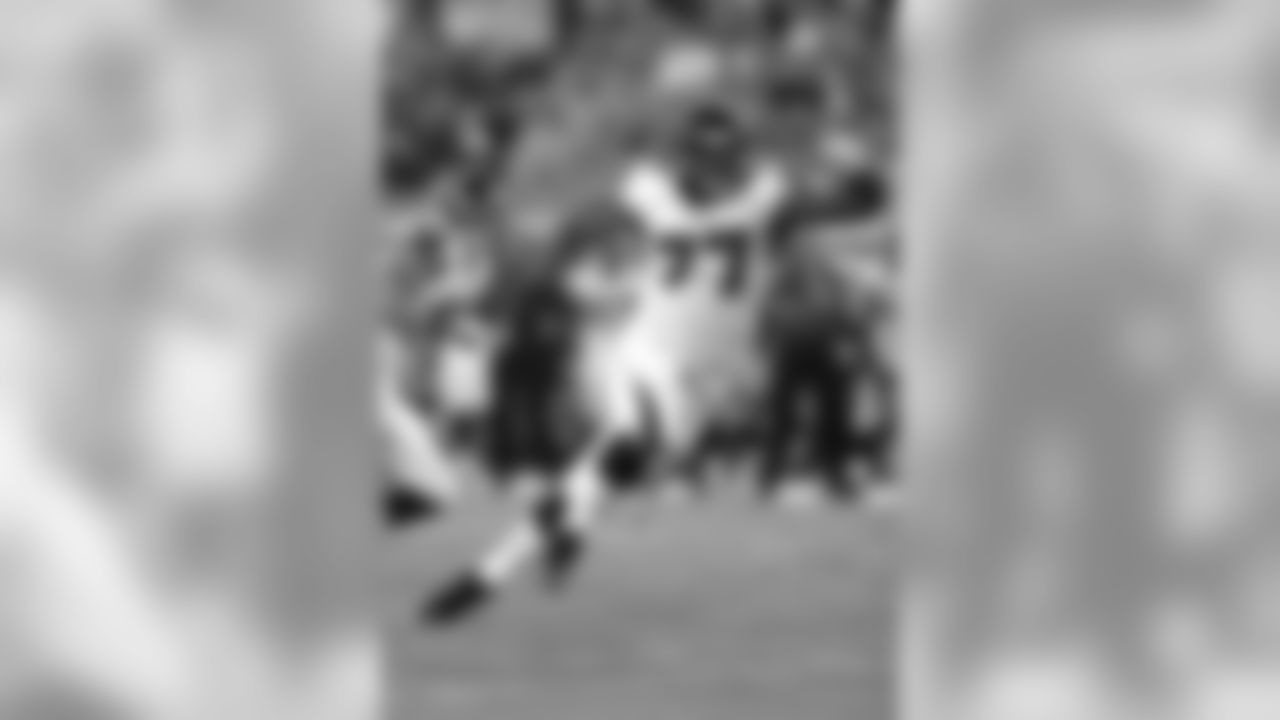
DT RA'SHEDE HAGEMAN
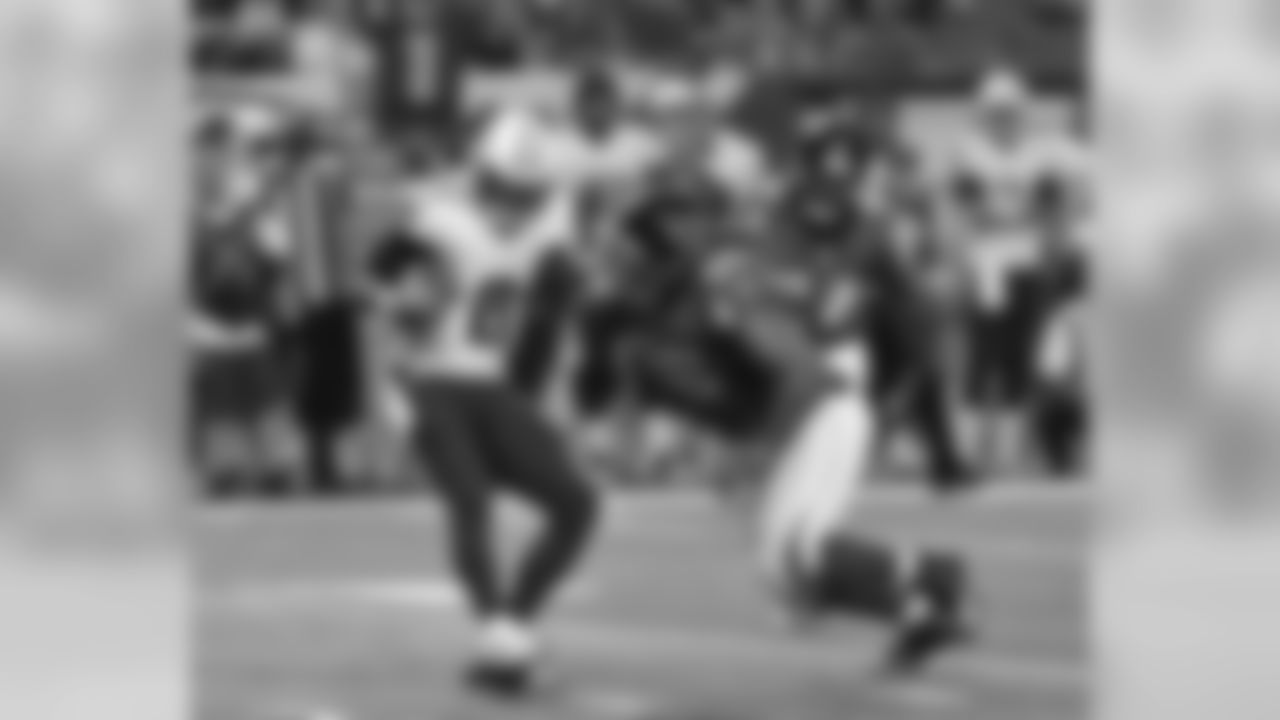
DT PAUL SOLIAI
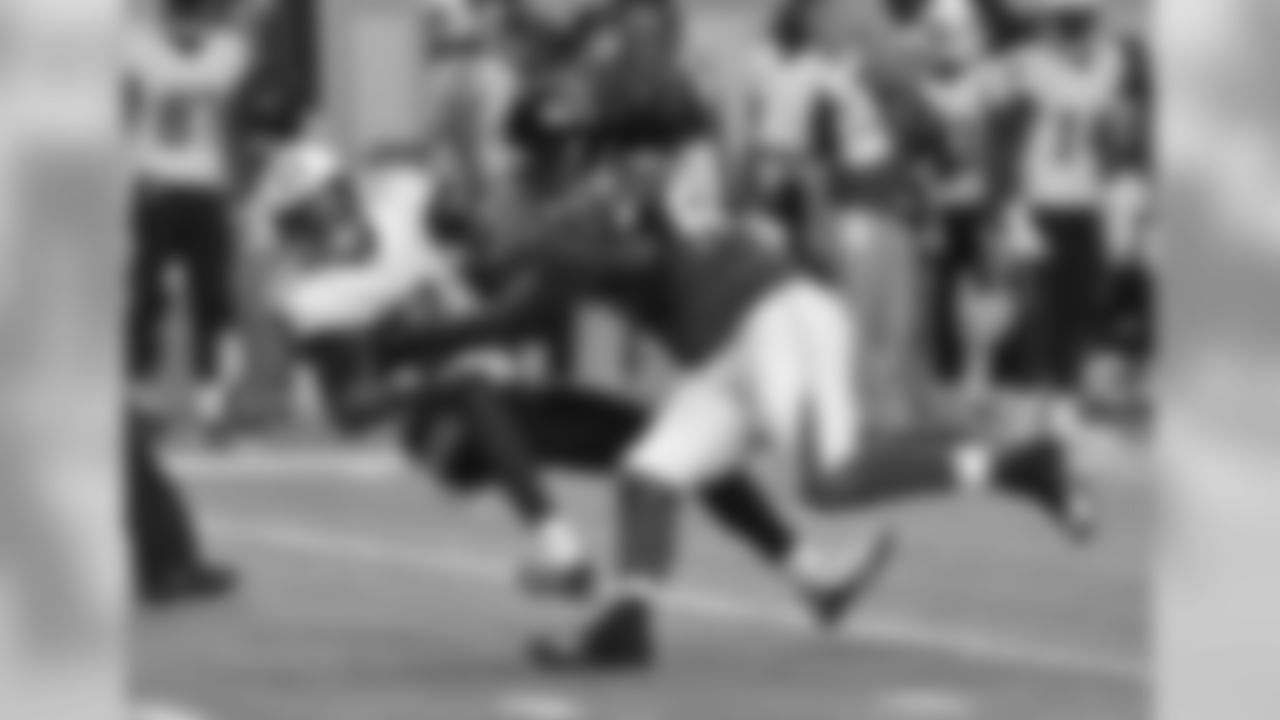
DE TYSON JACKSON
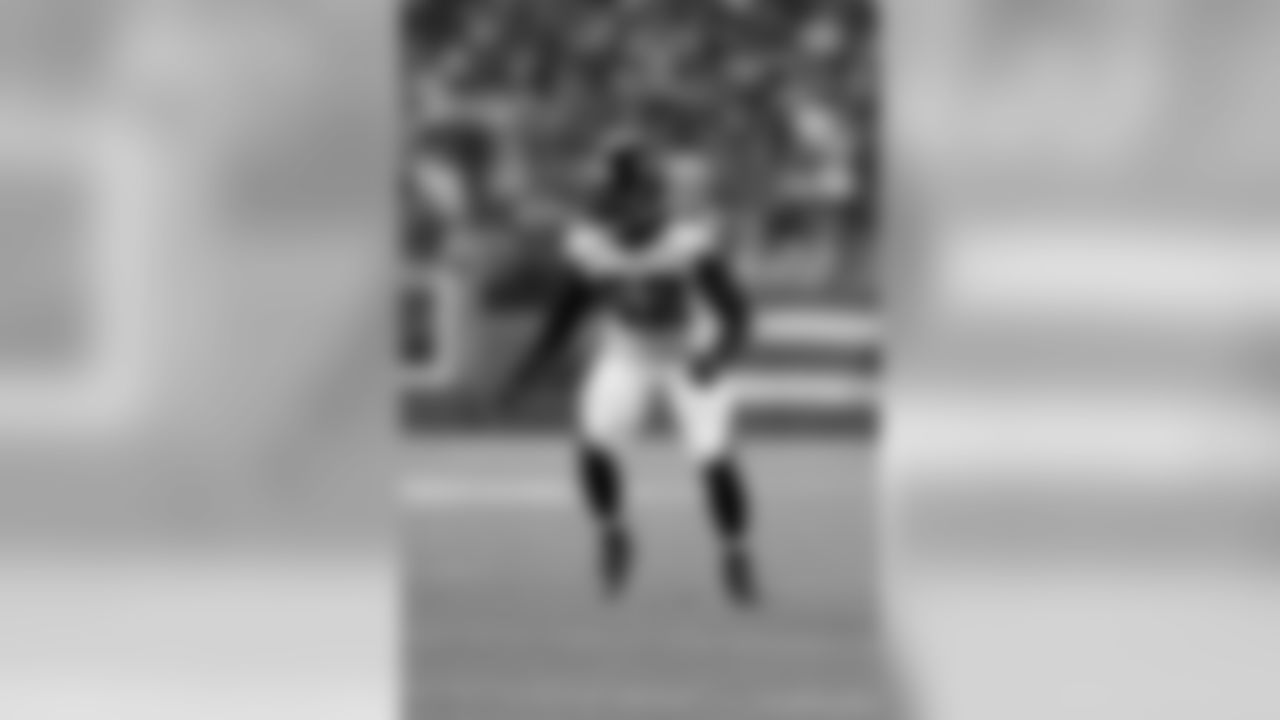
LB JUSTIN DURANT
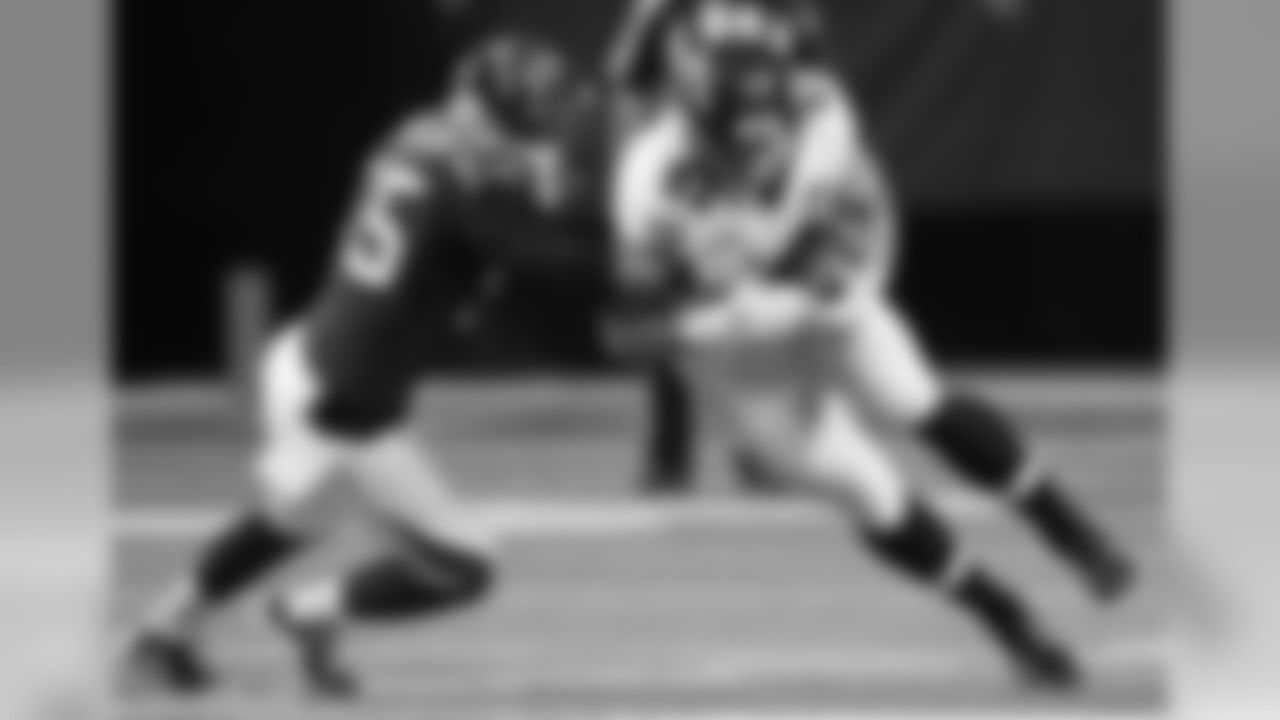
LB PAUL WORRILOW
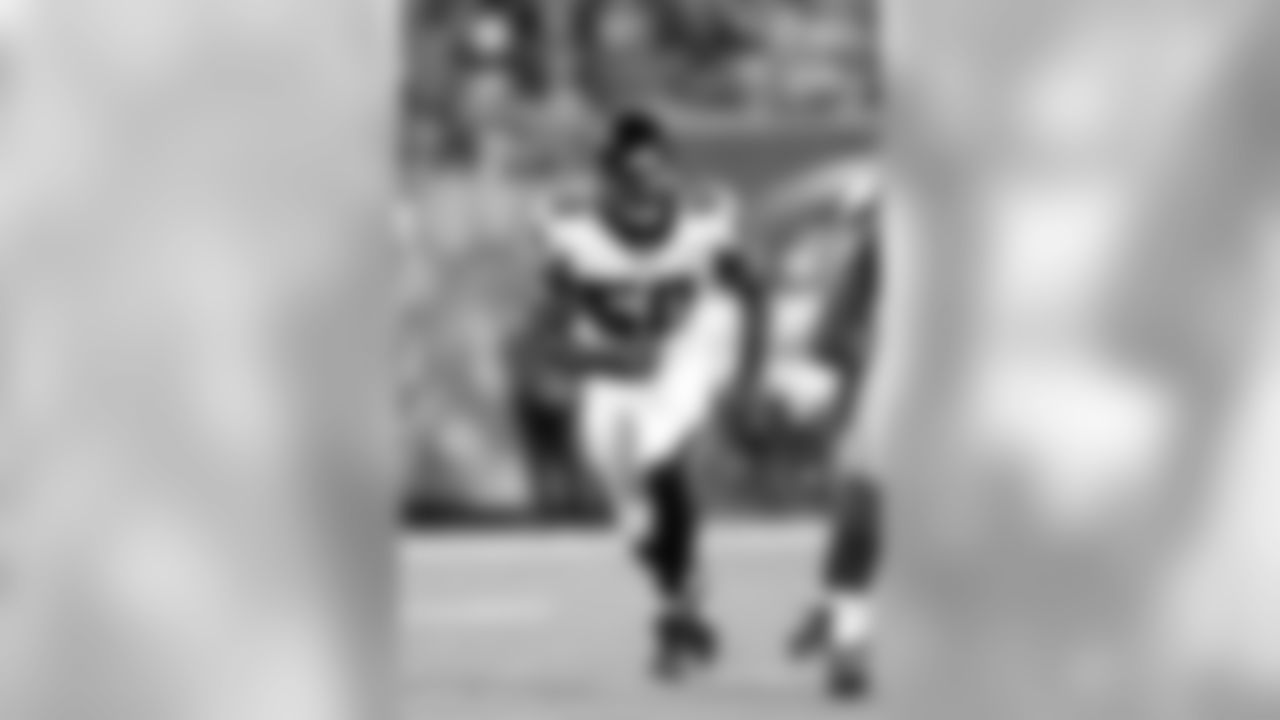
LB O'BRIEN SCHOFIELD
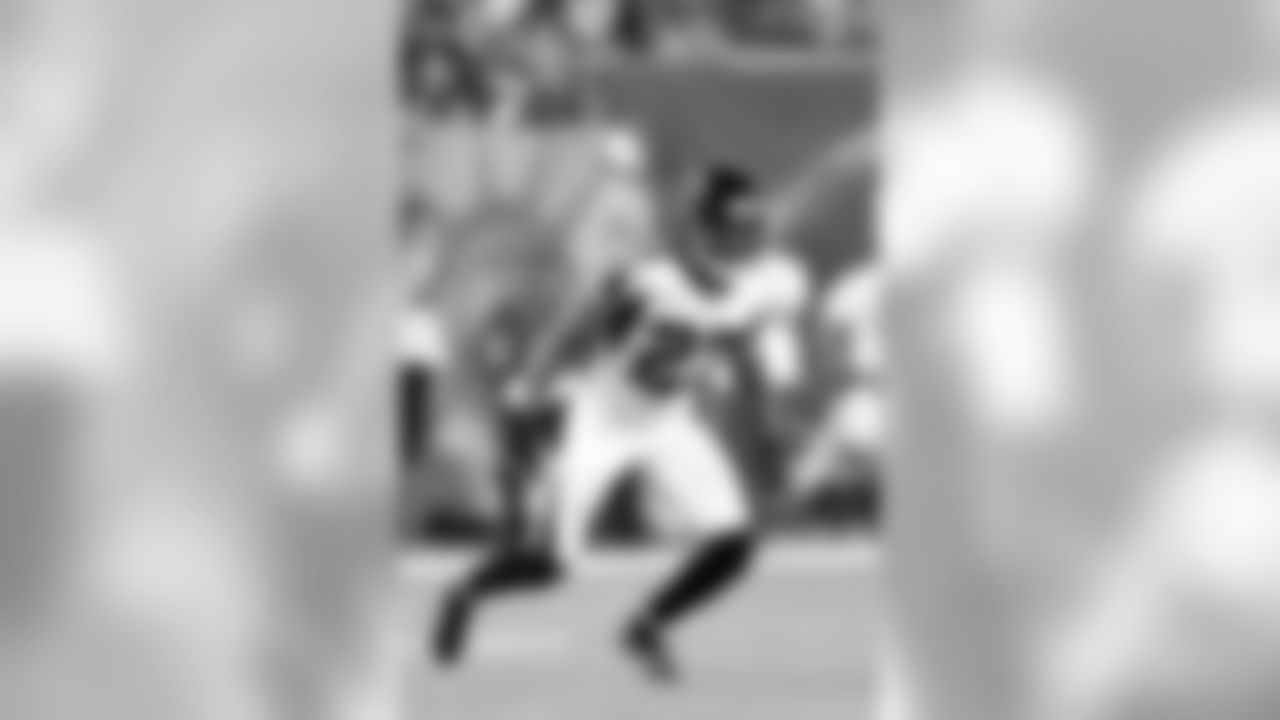
CB ROBERT ALFORD
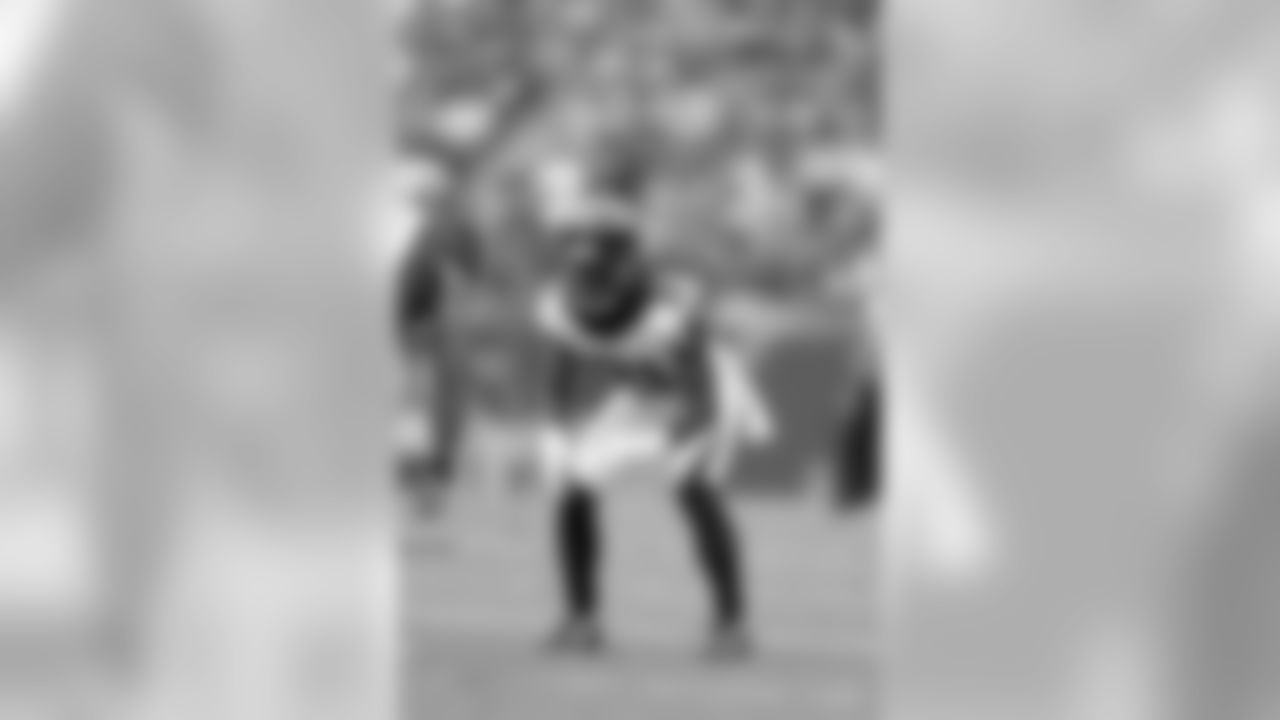
CB DESMOND TRUFANT
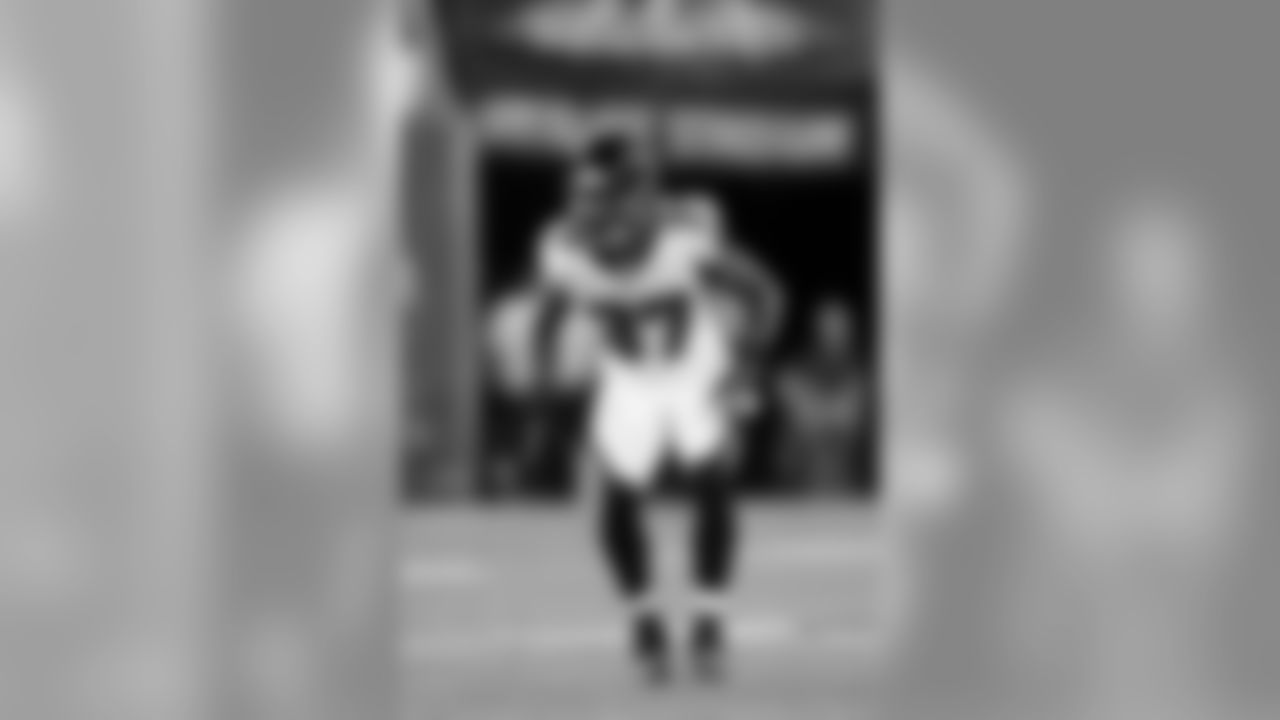
SAFETY RICARDO ALLEN
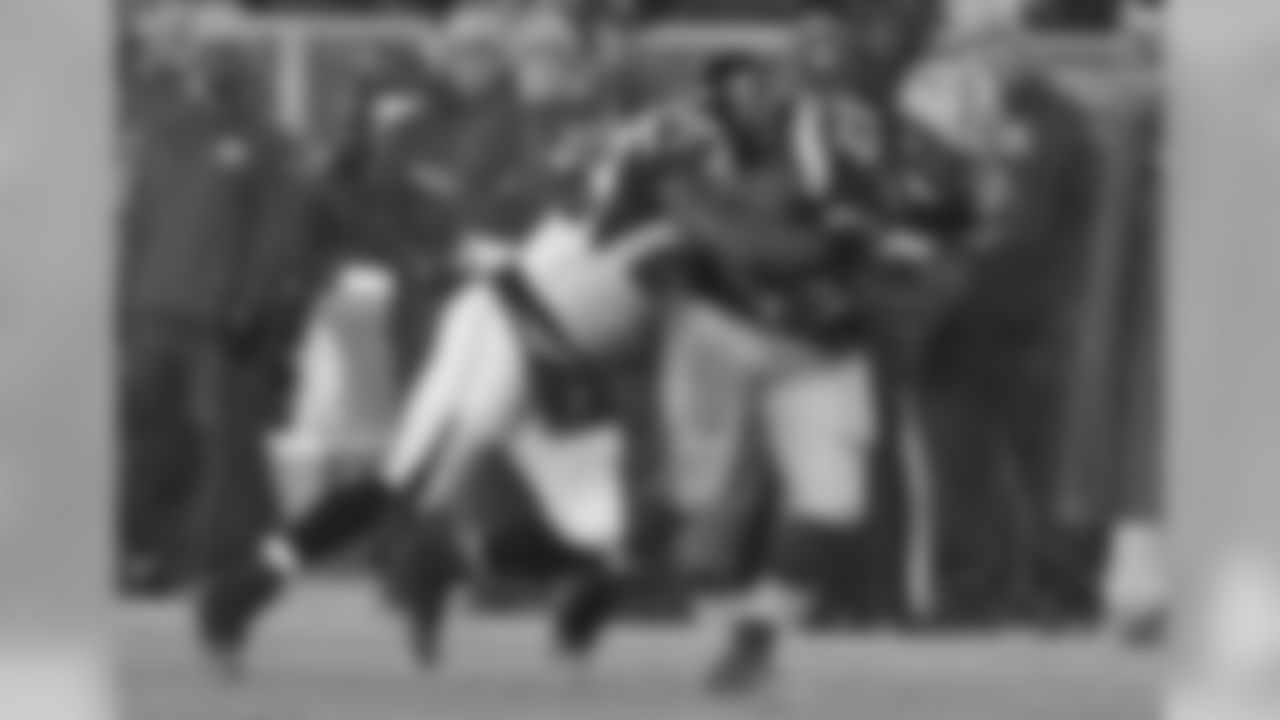
SAFETY WILLIAM MOORE
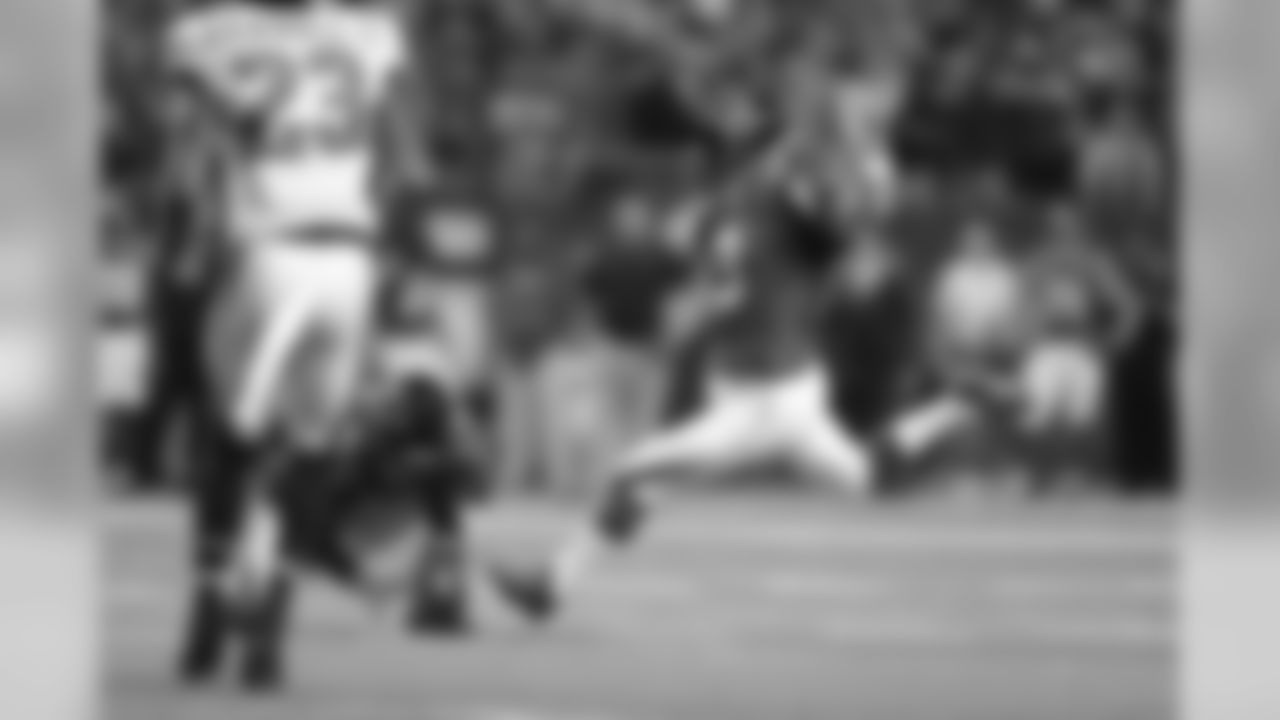
KICKER MATT BRYANT

PUNTER MATT BOSHER



